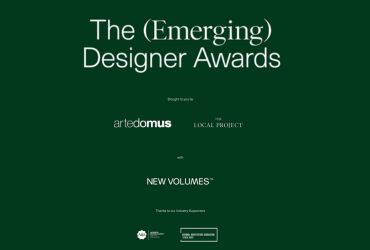Industrial design can play a critical role in addressing the environmental crisis by driving sustainable innovation and circular practices.
At MDW25 at RMIT, the ADA highlighted this through the lens of sustainable furniture design and intellectual property protection, presenting – ‘Future-Proofing Design: From Originality to Impact.’
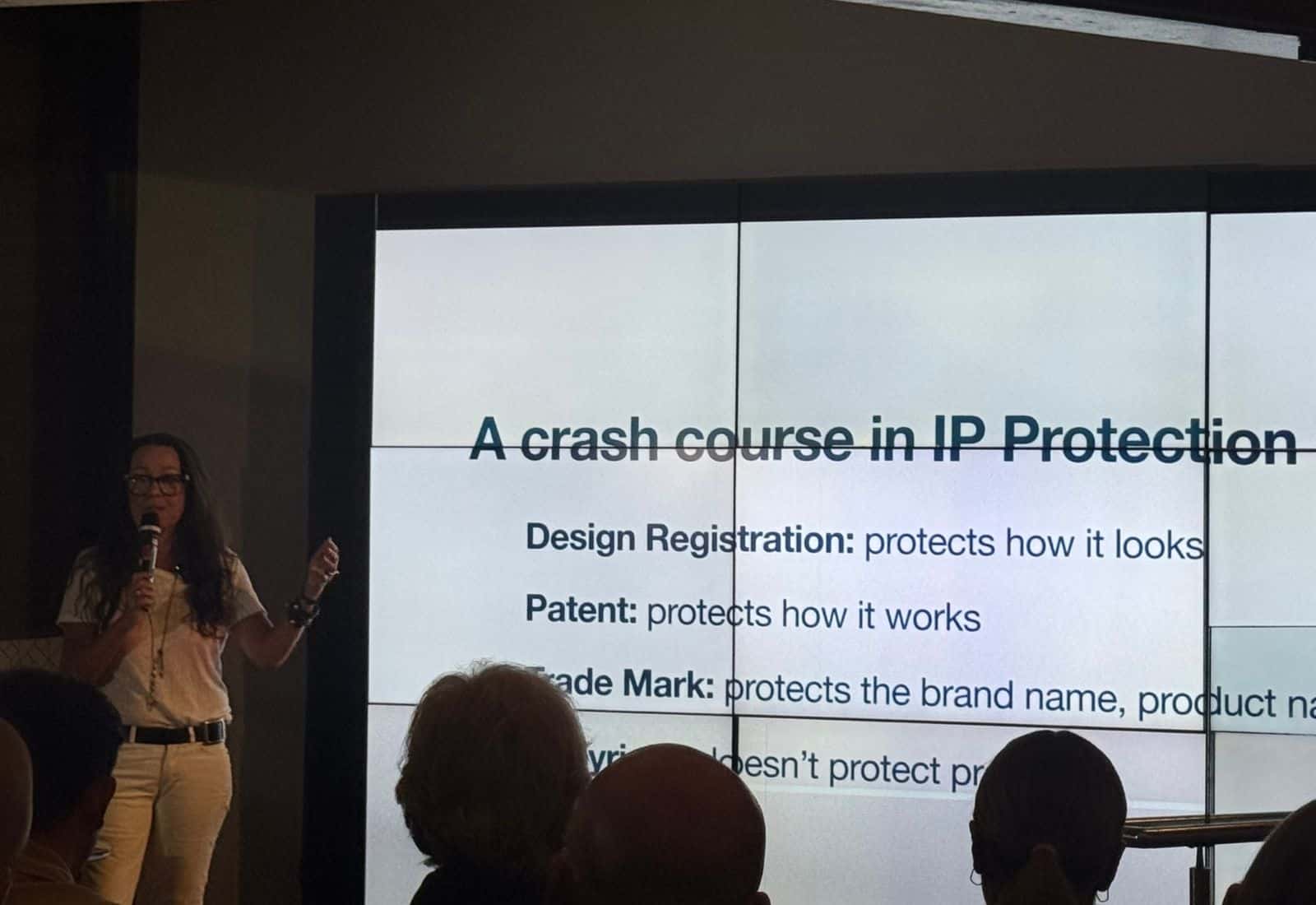 Future-Proofing Design: Protecting Innovation and Sustainability in Furniture
Future-Proofing Design: Protecting Innovation and Sustainability in Furniture
Sustainable furniture design and intellectual property protection were key themes at our presentation during Melbourne Design Week. We were thrilled to join the lineup of industry luminaries to present as part of the Redacted program.
ADA Director Anne-Maree Sargeant (AMS) examined the crucial role of intellectual property protection in supporting a sustainable furniture industry and enabling circular practices.
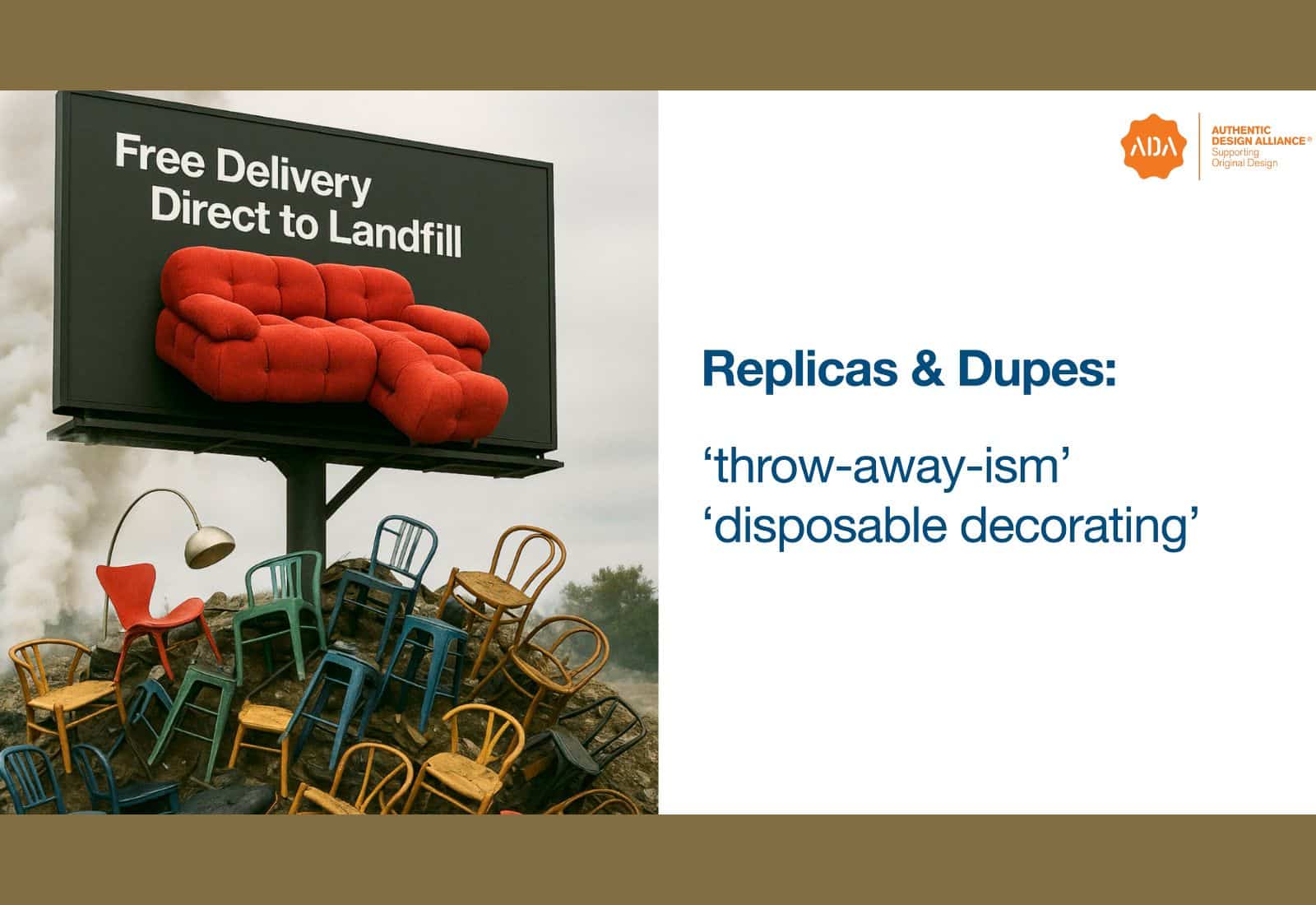
Fast Furniture, a Global Environmental Threat
The ADA highlighted that an estimated 240,000 tonnes of furniture waste — equivalent to 3 million 3-seat sofas or 35 million chairs — is collected by Australian councils each year!
Annually, global landfills receive 95% of office furniture from redundant tenancies. Since companies renew their leases approximately every seven years, the procurement process lacks a built-in approach for reuse, restoration, or recycling.
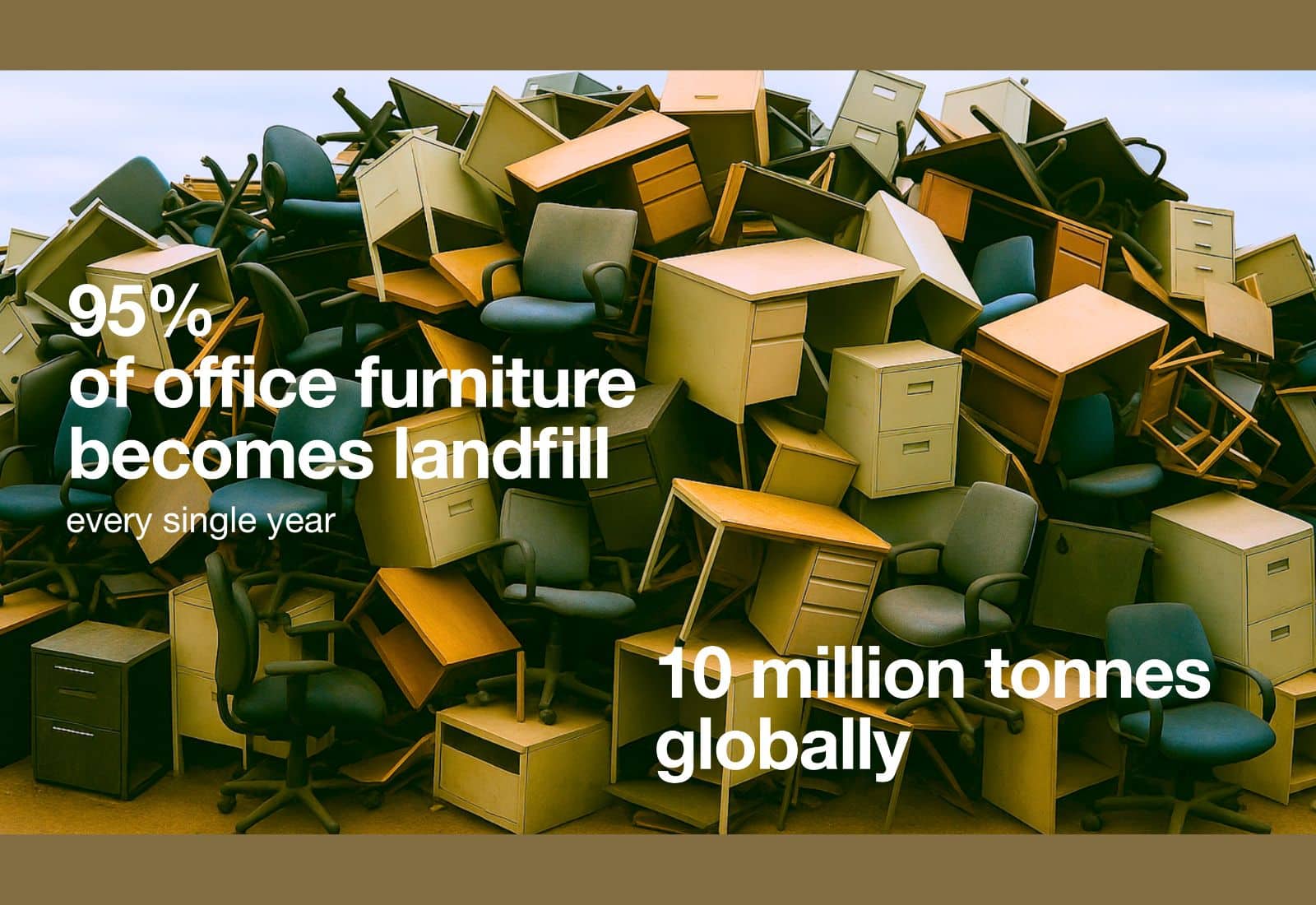
Why Protecting Design Matters for Sustainability
Beyond material and manufacturing choices, the failure to protect original designs at the outset contributes to this ‘throw-away’ culture.
Replicas and unlicensed copies flood the market, encouraging disposable decorating habits that undermine efforts towards sustainability.
How IP Enables Circular and Sustainable Practice
Unpacking the link between briginality, IP, and circular economy AMS discussed why embedding IP protection from the earliest design phases is essential.
Without it, innovation becomes vulnerable to copying, discouraging investment in durable, sustainable products.
Spotlighting case studies from David Trubridge Coral Light and Huskee Reusable Coffee Cups, AMS demonstrated how design registration and trade mark protections support circular, closed-loop product lifecycles — from sustainable materials through reuse and recycling.
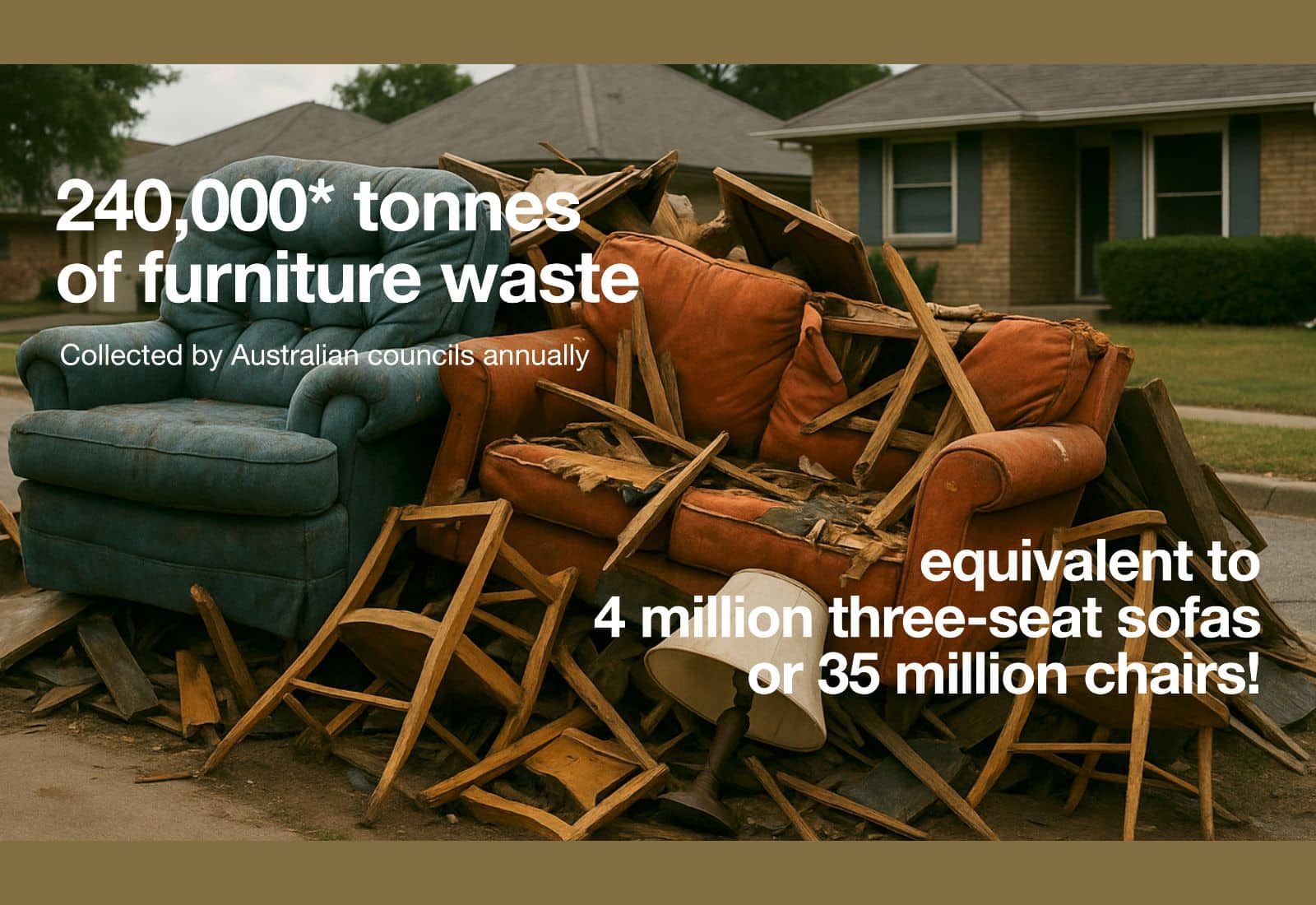
A Crash Course in IP Protection
We gave an overview of the types of intellectual property (IP) relevant to product design in Australia, including design registration, patents, and trade marks. It dispelled common misconceptions about copyright protection in this sector.
Attendees learned practical steps to build IP into their design process, conduct thorough due diligence, and align with clients and suppliers on protecting authenticity.

Looking Ahead: ADA’s Expanded Role and Support for the Industry.
With a new phase launching in mid-2025, ADA is broadening its scope to include advisory boards, industry codes of conduct, and mentorship programs for early-career designers.
How to Join Future Events
For designers, specifiers, manufacturers, and anyone invested in a sustainable future for furniture, ADA’s sessions offer practical insights into safeguarding innovation and supporting authentic design.
Register for future sessions, and share your area of specific interest – here.



